Sharing Study

What are some good tools for creating and sharing study materials ?
This article discusses various tools that can be used for creating and sharing study materials. Google Docs, Canva, and Quizlet are some of the best tools for creating study materials, while Dropbox, Padlet, and Edmodo are great for sharing them. These tools offer features like collaboration, accessibility, integration, design, gamification, storage, security, visualization, educational focus, and assessment. By utilizing these tools, students can enhance their learning experience and collaborate with others more efficiently.

What are some tips for leading a successful study group ?
Leading a successful study group requires careful planning, effective communication, and strong leadership skills. To achieve this, it is important to set clear objectives, organize meetings effectively, encourage active participation, foster collaboration and teamwork, and evaluate progress regularly. By following these tips, you can create a productive and enjoyable learning experience for all members of your study group.
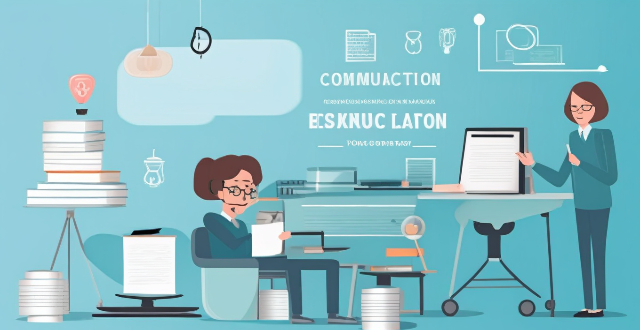
How can I effectively communicate with my study group members ?
Effective communication is essential for the success of any study group. To communicate better with your study group members, set clear objectives, use active listening skills, encourage open discussion, provide constructive feedback, and stay organized. By following these tips, you can work together to achieve your academic goals.

How can I make the most out of group study sessions ?
Group study sessions can be an incredibly effective way to learn and review material. By pooling knowledge, sharing insights, and engaging in collaborative learning, students can deepen their understanding of complex topics and improve their academic performance. To make the most out of group study sessions, consider the following strategies: ## Setting Clear Objectives - **Establish Goals**: Before diving into a study session, it's important to set clear objectives. Decide what topics or areas you want to cover and what you hope to achieve by the end of the session. - **Create an Agenda**: Prepare a structured agenda that outlines the topics to be discussed and the time allocated for each. This helps keep the study session focused and productive. ## Preparation is Key - **Assign Pre-reading**: Encourage all group members to do some pre-reading or pre-work before the session. This ensures everyone comes prepared with basic knowledge and questions to discuss. - **Bring Materials**: Each participant should bring relevant textbooks, notes, or any other materials that could facilitate the discussion. ## Active Participation - **Engage Actively**: Encourage all members to actively participate by asking questions, sharing insights, and contributing to discussions. - **Take Turns Teaching**: Rotate the role of "teacher" among group members. Research shows that teaching a concept to others reinforces your own understanding. ## Promote Collaboration - **Share Different Perspectives**: Each member may have a unique approach or perspective on the material. Encourage sharing these viewpoints to enrich the discussion. - **Brainstorm Together**: When confronted with challenging problems or concepts, work together to brainstorm solutions. ## Stay Focused - **Minimize Distractions**: Try to minimize distractions during the study session. Put away phones, limit side conversations, and create an environment conducive to learning. - **Stick to the Agenda**: Keep the discussion on track by referring back to the agenda and managing the time spent on each topic. ## Review and Reinforce - **Recap Key Points**: At the end of the session, summarize the key points covered. This helps reinforce learning and provides a quick reference for future studying. - **Assign Follow-up Tasks**: Assign tasks or exercises to be completed before the next session. This keeps the momentum going and ensures continued engagement with the material. ## Evaluate and Reflect - **Reflect on the Process**: Take a few minutes at the end of the session to reflect on what worked well and what could be improved. This helps fine-tune future study sessions. - **Evaluate Learning Outcomes**: Consider assessing your understanding through quizzes or short tests after a series of study sessions to evaluate the effectiveness of the group learning process.

How can I encourage active engagement in a study group ?
This article discusses strategies for encouraging active engagement in a study group, including setting clear goals and objectives, fostering a collaborative environment, assigning roles and responsibilities, providing opportunities for feedback and reflection, using technology to facilitate engagement, and offering incentives for participation. The author emphasizes the importance of active engagement for the success of a study group and encourages readers to make it a priority from the start.

How can I increase my motivation to study ?
Motivation is crucial for success in education, but staying motivated can be challenging. To increase your motivation to study, set clear goals, create a study plan, find a study group or partner, stay positive, and reward yourself for meeting goals.
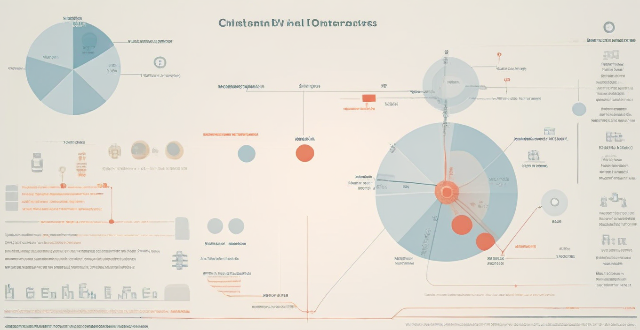
What is the importance of sharing climate information globally ?
Sharing climate information globally is crucial for understanding, predictSharing climate information globally is crucial for understanding, predictating the effects of climate change aids in modeling and forecasting future scenarios, and contributes to the development of early warning systems. Additionally, it fosters innovation, collaboration, and the formation of international agreements and policies related to climate change.

Can climate information sharing lead to better policy making ?
Climate change is a pressing issue that requires informed policymaking. Climate information sharing can improve decision-making, collaboration, and transparency in the policy process. However, challenges such as data quality, accessibility, and coordination must be addressed to ensure effective information sharing. Overcoming these challenges can lead to better policies that address climate change.

What are some effective study techniques for college students ?
**Effective Study Techniques for College Students:** College students can improve their academic performance by adopting effective study techniques. These include creating a study schedule, finding a suitable study environment, using active learning strategies, breaking information into chunks, practicing retrieval and review, staying organized, collaborating with peers, maintaining a healthy lifestyle, and seeking help when needed. Consistency, minimizing distractions, engaging with the material, chunking information, quizzing oneself, spaced repetition, utilizing note-taking systems and digital tools, participating in study groups, getting enough sleep and exercise, and leveraging academic support services are all crucial elements of successful studying. It's important to experiment and find out which methods work best for individual needs.
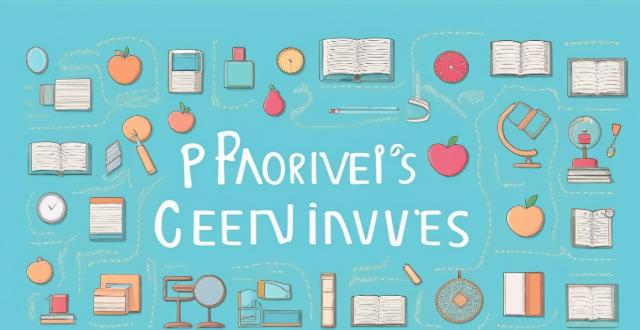
How can I improve my study habits to increase my learning efficiency ?
The text provides a comprehensive guide on how to improve study habits for higher learning efficiency. It suggests developing a consistent study schedule, creating an optimal study environment, using active learning techniques, breaking down study material, employing time management tools, setting clear goals, taking care of oneself, utilizing teaching as a learning tool, seeking help when needed, and reflecting on one's study methods. These strategies aim to enhance focus, concentration, memory retention, understanding, energy, interest, objectives, progress, brain rest, nourishment, knowledge reinforcement, assistance, perspectives, engagement, effectiveness evaluation, and approach adaptation. Consistency and self-reflection are emphasized as key factors in continuous improvement of academic performance.

What are the benefits of using Family Sharing with my Apple ID ?
Family Sharing with Apple ID offers benefits such as shared purchases, iCloud storage, location sharing, screen time management, and shared subscriptions. It allows up to six family members to share these features conveniently while saving money on subscriptions and storage plans.

What are some effective strategies for improving study habits and motivation ?
Effective strategies for improving study habits and motivation include setting clear goals, creating a study plan, eliminating distractions, using active learning techniques, staying motivated, seeking help when needed, and practicing self-care. These strategies can lead to academic success.

How can climate information sharing contribute to sustainable development goals ?
**How Can Climate Information Sharing Contribute to Sustainable Development Goals?** Climate information sharing plays a crucial role in achieving sustainable development goals (SDGs). This article discusses the various ways in which climate data can contribute to environmental sustainability, social equity, and economic growth. Key points include: 1. **Improving Resilience to Climate Change**: Early warning systems, adaptation planning, and infrastructure development are all enhanced by shared climate information. 2. **Supporting Sustainable Agriculture**: Farmers can use climate data for crop planning, water management, and pest and disease control. 3. **Promoting Clean Energy Solutions**: Climate information aids in renewable energy site selection, energy efficiency, and demand forecasting. 4. **Enhancing Biodiversity Conservation**: Habitat protection, species survival, and ecosystem services are all influenced by climate trends. 5. **Advancing Gender Equality**: Providing women with climate information can empower them and reduce their vulnerabilities during climate-related disasters. 6. **Fostering Partnerships for Sustainable Development**: Multi-stakeholder engagement, international cooperation, and public-private partnerships are all facilitated by climate information sharing. In conclusion, ensuring that stakeholders have access to accurate and timely climate data is essential for making progress towards a more sustainable future.

How can technology improve the process of climate information sharing ?
In this topic summary, we will discuss how technology can improve the process of climate information sharing. Technology has revolutionized the way we share and access information, including climate data. With advancements in technology, it is now easier than ever to collect, analyze, and disseminate climate information to a wide range of stakeholders. Data collection and analysis are crucial steps in the process of climate information sharing. Remote sensing, ground-based sensors, and data analysis software are some of the tools that can be used to collect and analyze climate data. These tools can help us monitor changes in climate patterns over time, identify trends and predict future climate events. Dissemination of climate information is another important step in the process. Online platforms, social media, and open data initiatives are some of the ways that climate information can be shared with researchers, policymakers, and the general public. These platforms can also offer interactive tools for visualizing and exploring the data. Collaboration and partnerships are also essential in improving the process of climate information sharing. Cloud-based collaboration tools, partnerships with tech companies, and crowdsourcing are some of the ways that researchers and stakeholders can work together on climate projects, sharing data and insights in real-time. In conclusion, technology plays a crucial role in improving the process of climate information sharing by enhancing data collection and analysis, facilitating the dissemination of climate information, and fostering collaboration among stakeholders. As technology continues to evolve, we can expect even more innovative solutions for addressing the challenges posed by climate change.
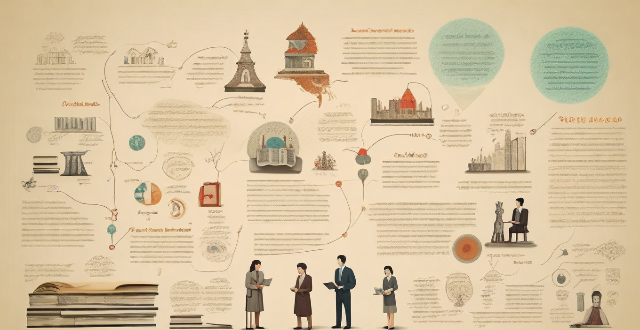
What are some effective study techniques for learning history ?
Effective study techniques for learning history include understanding chronological order, using visual aids, active reading, group study, practice writing, connecting historical events with the present, using multimedia resources, and visiting museums and historical sites. These methods can help deepen understanding and make the subject more engaging and rewarding.

How do I create an effective study plan ?
Creating an effective study plan is crucial for academic success. Here are some steps to help you create a successful study plan: 1. Set clear goals that are specific, measurable, achievable, relevant, and time-bound (SMART). 2. Assess your time and determine how much you can realistically dedicate to studying each day/week. 3. Allocate time for each subject based on difficulty level and proficiency. 4. Create a schedule using a calendar or planner and stick to it as much as possible. 5. Incorporate short breaks during study sessions to avoid burnout and maintain focus. 6. Regularly review progress and adjust the study plan accordingly. 7. Eliminate distractions by finding a quiet place to study and turning off unnecessary devices. 8. Stay motivated by reminding yourself of goals and celebrating small achievements. 9. Seek help when needed from teachers, tutors, or classmates. By following these steps, you can create an effective study plan that will help you achieve academic success while managing your time efficiently. Remember to stay flexible and adjust your plan as needed to accommodate changes in your schedule or priorities.

What are the advantages and disadvantages of working in a study group ?
The advantages of working in a study group include improved learning outcomes, enhanced collaboration skills, motivation and accountability, and exposure to diverse perspectives. However, the disadvantages include time management challenges, unequal participation, lack of individual attention, and personality conflicts. To make the most of a study group, it is important to establish clear guidelines, set expectations for participation, and communicate openly with group members about any issues that arise.

How can I stay focused during long study sessions ?
To stay focused during long study sessions, create aTo stay focused during long study sessions, create a by minimizing distractions create a conducive environment by minimizing distractions and optimizing your workspace. Establish a routine with clear objectives and stick to a schedule. Use time management techniques like the Pomodoro technique and prioritize tasks. Stay motivated and engaged by rewarding yourself and mixing up your study methods. Take care of yourself by getting adequate sleep, eating healthy meals, and exercising regularly.

Is it safe for women to use ride-sharing services like Uber when traveling ?
Ride-sharing services like Uber have become increasingly popular among travelers due to their convenience and affordability. However, safety concerns have been raised, especially for women who may be more vulnerable to certain risks. In this response, we will explore the safety aspects of using ride-sharing services for female travelers. Ride-sharing services like Uber have implemented several safety features to ensure the well-being of their passengers. These include driver screening, GPS tracking, in-app communication, and emergency assistance. Women can further mitigate potential risks by verifying the driver's identity, sharing trip details, choosing well-lit areas, and staying alert during the ride. Overall, ride-sharing services like Uber can be safe for women when traveling, provided that they exercise caution and utilize the safety features offered by these platforms. By following best practices such as verifying driver identity, sharing trip details, choosing well-lit areas, and staying alert during the ride, women can significantly reduce potential risks associated with using ride-sharing services. It is also essential to report any safety concerns to the appropriate authorities and the ride-sharing company to help improve overall safety standards for all users.

How can I create an effective study schedule for exams ?
Creating an effective study schedule for exams is crucial for academic success. To create a study plan that works for you, follow these steps: 1. Identify your goals and prioritize your study time effectively. 2. Assess your time availability and be realistic about the amount of time you can dedicate to studying without sacrificing other important aspects of your life. 3. Break down the material into smaller sections or topics and map out when you will study each topic using a planner or calendar. 4. Create a study schedule based on your goals, time availability, and material breakdown. Allocate enough time for each topic, schedule regular breaks, incorporate different study techniques, and be flexible with your schedule. 5. Stick to your schedule as much as possible and use reminders or alarms to help you stay on track. 6. Periodically evaluate your progress and adjust your study schedule accordingly. By following these steps, you can maximize your chances of achieving academic success while minimizing stress and anxiety during exams.

What are the challenges faced while sharing climate information across different countries ?
The text discusses the challenges faced while sharing climate information across different countries. The challenges include language barriers, data standardization, technical infrastructure, legal and policy frameworks, political will and cooperation, education and awareness, financial constraints, cultural differences, time zones and coordination, and quality assurance and control. Addressing these challenges through international cooperation, standardization efforts, and investment in technology and education can improve the sharing of climate information, leading to better informed decisions and more effective actions against climate change.

What are the benefits of collaborating in a study group ?
**Benefits of Collaborating in a Study Group** Collaborating in a study group offers numerous benefits to students, including enhanced learning and understanding, improved academic performance, development of valuable skills, and emotional and social benefits. By participating in study groups, students can gain different perspectives, active participation, immediate feedback, better grades, increased retention, preparation for class discussions, communication skills, teamwork and collaboration, critical thinking, time management, reduced anxiety and stress, building friendships, increased motivation, and networking opportunities. Overall, collaborating in a study group is an excellent way to make the most out of your educational journey while building lasting relationships along the way.

How do I adapt my study plan if it's not working as expected ?
If your study plan is not working as expected, it's important to identify the root cause of the problem and make adjustments accordingly. Here are some tips on how to adapt your study plan: ### Identify the Problem 1. Assess your progress 2. Identify potential roadblocks 3. Reflect on your study habits ### Make Adjustments to Your Study Plan #### Change Your Study Environment - Find a quiet space - Create a comfortable study area #### Improve Your Time Management Skills - Create a schedule - Prioritize tasks - Use time-management tools #### Adjust Your Study Methods - Try different study techniques - Break down complex topics - Take breaks #### Seek Help When Needed - Ask for clarification - Join a study group - Consider hiring a tutor By identifying the problem and making adjustments to your study plan, you can improve your chances of success and achieve your academic goals. Remember to be patient and persistent in your efforts, and don't be afraid to seek help when needed.

How does Family Sharing work for content synchronization across multiple Macs and iOS devices ?
Family Sharing allows up to six family members to share content and services across their Macs and iOS devices. This includes music, movies, TV shows, books, apps, and location information. To set up Family Sharing, follow the steps on your iPhone, iPad, iPod touch, Mac, or Apple TV. Once set up, family members can share purchased apps, games, music, movies, TV shows, books, and photos. They can also share their locations using the Find My app. Managing family members and content restrictions is possible through the Family Sharing settings on your device. Overall, Family Sharing makes it easy for families to share content while maintaining control over what content is accessible by each family member.
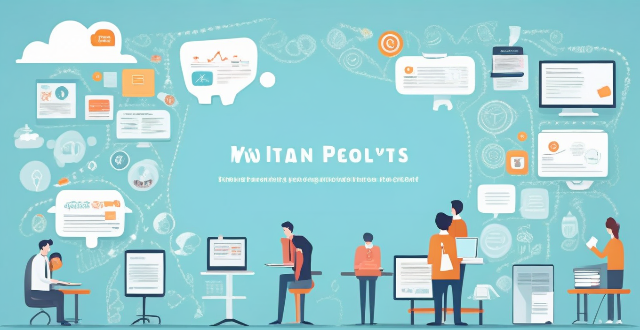
Is group study beneficial for exam preparation ?
Group study offers benefits for exam preparation, including knowledge sharing, motivation, improved comprehension, social skills development, stress relief, and better time management. Its success depends on factors like group dynamics and commitment levels.

How can I stick to my study schedule without getting distracted ?
Sticking to a study schedule without getting distracted requires discipline, motivation, and the right strategies. Here's how you can stay on track with your studies: 1. Setting clear goals: Define objectives and break them down into smaller parts to make progress without feeling overwhelmed. 2. Creating a conducive environment: Minimize distractions by finding a quiet space, turning off notifications, and organizing your study area. 3. Utilizing time management techniques: Use a planner to allocate specific time slots for studying and implement the Pomodoro Technique to maintain concentration and prevent burnout. 4. Staying motivated: Give yourself small rewards after completing study sessions or achieving milestones, and visualize success to provide the necessary push to continue. 5. Taking care of yourself: Incorporate regular exercise and ensure adequate sleep to improve mental clarity and concentration. 6. Eliminating procrastination: Tackle procrastination by addressing its root cause and starting with the hardest task to reduce the likelihood of procrastination. By consistently applying these strategies, you can enhance your focus and efficiency in your academic pursuits. Remember, consistency is key, so persevere and stay committed to your study schedule for the best results.

How can I overcome procrastination and stay motivated to study ?
Procrastination is a common problem that affects many students. It can be challenging to stay motivated and focused on your studies, especially when there are so many distractions around you. However, there are several strategies you can use to overcome procrastination and stay motivated to study. Here are some tips: - Set clear goals for yourself. Make sure your goals are specific, measurable, achievable, relevant, and time-bound (SMART). For example, instead of saying "I want to do well in my math class," say "I want to score at least 90% on my next math test." Having a clear goal will help you stay focused and motivated. - Break tasks into smaller, more manageable chunks. Large tasks can be overwhelming and lead to procrastination. To avoid this, break your tasks into smaller, more manageable chunks. For example, if you have a research paper to write, break it down into smaller tasks such as selecting a topic, conducting research, creating an outline, writing the introduction, etc. Completing each small task will give you a sense of accomplishment and keep you motivated. - Create a study schedule. Creating a study schedule can help you stay organized and on track. Allocate specific times for studying, breaks, and other activities. Stick to your schedule as much as possible, but also be flexible enough to adjust it if necessary. Having a plan will help you avoid wasting time and reduce the likelihood of procrastination. - Eliminate distractions. Distractions can easily lead to procrastination. To avoid this, eliminate distractions such as social media, television, or video games during your study time. Find a quiet place where you can focus without interruptions. Turn off your phone or put it on silent mode to avoid distractions from notifications. - Use time management techniques. Using time management techniques such as the Pomodoro technique or the Eisenhower matrix can help you stay focused and productive. The Pomodoro technique involves working for 25 minutes and then taking a five-minute break. The Eisenhower matrix helps you prioritize tasks based on their urgency and importance. These techniques can help you manage your time effectively and reduce procrastination. - Reward yourself. Rewarding yourself after completing a task can help you stay motivated. Set up rewards for yourself after completing each task or reaching a milestone. For example, you could treat yourself to a favorite snack or watch an episode of your favorite TV show after finishing a study session. This will give you something to look forward to and keep you motivated. - Seek support. Finally, seek support from friends, family, or teachers if you're struggling with procrastination. They can offer encouragement, advice, or accountability to help you stay on track. Joining a study group or finding a study partner can also provide motivation and support. In conclusion, overcoming procrastination requires discipline, planning, and self-motivation. By setting clear goals, breaking tasks into smaller chunks, creating a study schedule, eliminating distractions, using time management techniques, rewarding yourself, and seeking support, you can stay motivated and focused on your studies.
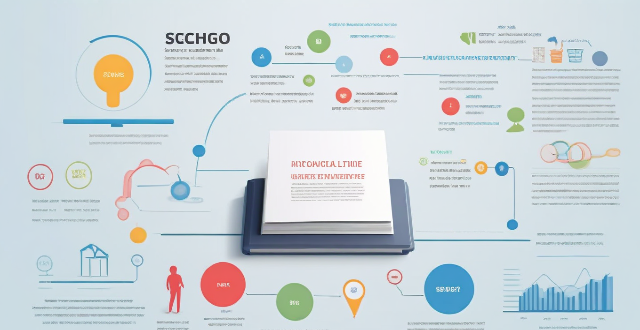
What role does self-discipline play in following a study plan ?
Self-discipline is crucial in following a study plan effectively. It involves setting goals, prioritizing tasks, maintaining focus on objectives, and avoiding distractions. By breaking down long-term goals into smaller, manageable tasks and allocating time wisely, self-disciplined individuals can maximize productivity and achieve academic success efficiently. Consistency, overcoming procrastination, and staying motivated are also key factors in sticking to a study plan. Developing strong self-discipline skills can help students reach their full potential.

How do I find scholarships specific to my field of study ?
Finding scholarships specific to your field of study can be a challenging task, but it is definitely worth the effort. Here are some steps you can take to find scholarships that match your academic interests and career goals: 1. Research your field thoroughly to identify key organizations, associations, and institutions that offer scholarships related to your area of interest. 2. Use online scholarship search engines such as Fastweb, ScholarshipOwl, and Cappex to find scholarships based on your academic achievements, extracurricular activities, and career goals. 3. Check with your school's financial aid office for information about scholarships specific to your field of study and resources such as scholarship databases or lists of local organizations that offer scholarships. 4. Attend scholarship workshops and events hosted by your school or local community organizations to network with professionals in your field and learn about scholarship opportunities. 5. Contact professional organizations and associations in your field directly to find out about available scholarships and application requirements.

How can I handle disagreements or differing opinions in a study group ?
In the text, the author provides a guide on how to handle disagreements in a study group. They suggest listening actively, staying calm and respectful, using "I" statements, finding common ground, compromising, taking breaks, and seeking mediation. The author emphasizes that handling disagreements requires patience, empathy, and effective communication skills. Overall, they argue that learning how to handle disagreements effectively can lead to stronger relationships and better outcomes.